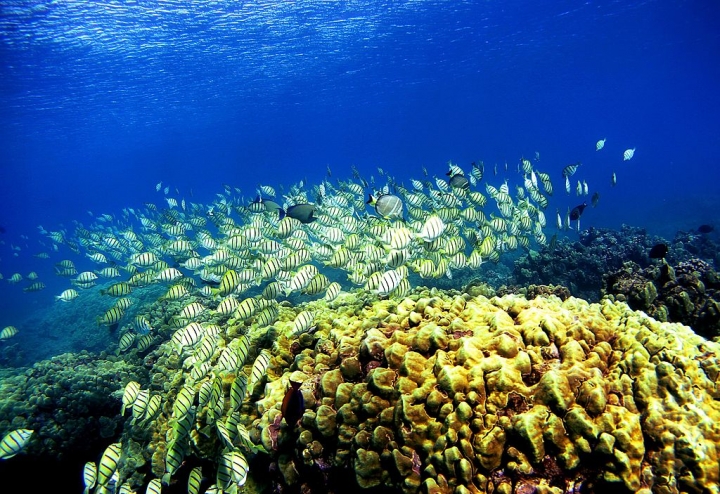-
Tips for becoming a good boxer - November 6, 2020
-
7 expert tips for making your hens night a memorable one - November 6, 2020
-
5 reasons to host your Christmas party on a cruise boat - November 6, 2020
-
What to do when you’re charged with a crime - November 6, 2020
-
Should you get one or multiple dogs? Here’s all you need to know - November 3, 2020
-
A Guide: How to Build Your Very Own Magic Mirror - February 14, 2019
-
Our Top Inspirational Baseball Stars - November 24, 2018
-
Five Tech Tools That Will Help You Turn Your Blog into a Business - November 24, 2018
-
How to Indulge on Vacation without Expanding Your Waist - November 9, 2018
-
5 Strategies for Businesses to Appeal to Today’s Increasingly Mobile-Crazed Customers - November 9, 2018
Fish Urine Crucial To Health And Growth Of Coral Reefs
Coral reefs wouldn’t be the same without their lovely fish. Surprisingly, fishing had no effect on the number of fish species across sites, but significantly reduced the abundance and size of top predators and large fish species, substantially reducing nutrient storage and supply by fish communities in the reefs. In return, fish offer their urine.
Advertisement
“Rebuilding coral reef fish communities is of critical importance for food security and the livelihood of billions of people”, writes a team led by Jacob Allgeier in Nature Communications.
The Nassau grouper, the striped fish in the center, is one of the larger predator species that lurks around coral reefs, which need fish urine to thrive. This means that if you remove fishes out, it would also mean removing nutrients from the ecosystem.
During the research, Allgeier along with his colleagues calculated the nutrient levels at different corals reefs and discovered that the level of important nutrients was more in reefs having greater predatory fish population, while the reefs with only some huge fishes possessed poor nutrient levels.
Previous studies showed that a large population of fish helps coral reefs grow even two times faster than a reef which lacks its’ most important, vital inhabitants. With no fishes to take care of it, the coral reef will reduce. “If biomass is shrinking, there are fewer fish to pee”.
Fish are depending on coral reefs to survive: they camouflage in order to be safe from predators, as well as to lie at the lurch.
Fish possess a huge part of the nutrients in a coral reef in their tissues, thus they also play a significant role in their recycling.
“This study is useful to understand alternative ways fishing is affecting coral reef ecosystems”, Allgeier said.
Allgeier’s inspiration for taking on this research was a 1980s paper by now emeritus research professor Judith Meyer at the University of Georgia, which showed that coral reefs with fish grew at over double the speed of reefs where fish were absent. The study calls for a broader perspective in coral reef restoration that incorporates fundamental ecological processes into management actions.
The implications of the new findings may be crucial for coral reef conservation.
As a graduate student, Allgeier’s kitchen on Abaco Island in the Bahamas became his lab, and he caught hundreds of live fish, put them in plastic bags for half an hour, then measured the nutrients in the water before and after. They are working on models that show how many nutrients are in the water and what type we can find. They are built by colonies of tiny animals, which are found in marine waters that have nutrients.
Advertisement
“It’s remarkable how robust the models are just from knowing fish size and species”, he concluded. “In fact, according to a new study, fishing in Caribbean coral reefs could cut almost in half the nutrients stored in fish”. Allgeier is now working with researchers at the University of California, Santa Barbara, to collect data next on fish pee in tropical Pacific Ocean reefs, essentially building upon the data collection Allgeier did as a graduate student.




























